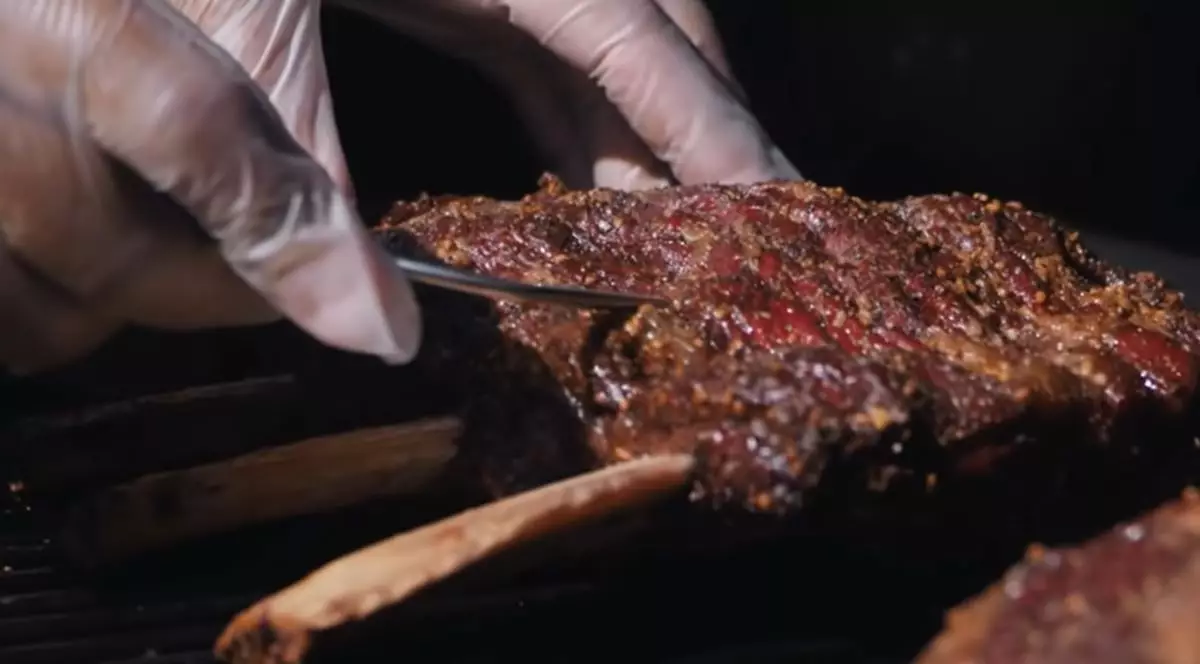
Is Smoked Meat Bad for You? 5 Reasons Why You Should Avoid Eating It
There’s no doubt that smoked meat is flavorful and addictive. Whether it’s beef brisket, pulled beef, pork butt, pork and lamb shoulders, or chicken, there’s something delectable about the burning wood that slowly cooks the meat. The mouth-watering aroma and scrumptious smoky flavor turns regular meat into an irresistible culinary work of art.
In recent years, however, many people have raised concerns regarding the potential harm caused by the consumption of smoked meat. But is this something to be really concerned about? Is smoked meat bad for you? Here’s the truth about smoked meat.
Table of Contents
Smoking meat is as old as the caveman
The history of smoking meat can be traced back to the time of the primitive caveman, shortly after fire was discovered. Historians believe early humans would hang and dry their meat, particularly fish and animal proteins. Later, they discovered that smoke would help preserve and give the meat a different flavor.
Then, people learned to use pre-curing techniques by using salt or putting meats in salty brines. This technique is so efficient it is still practiced today.
Fast-forward to today, smoking meat is no longer just for preserving the meat. It is also widely used to bring out the special flavors, all without the need of heavy salting.
Different methods and types of meat smoking
There are also different methods of smoking, such as hot smoking and smoke roasting. Both use hot temperatures to cook the meat.
There’s also a method called “cold smoking” where meats are stored in a smokehouse at 68 to 86 degrees Fahrenheit. This keeps the meat moist but doesn’t fully cook the meat.
Also, there are now many different types of smokers, such as charcoal, wood, electric, propane/gas-powered, pellet, offset, and kettle grills. There are also cold smoke techniques which include the use of salt-cure and/or fermentation.
More importantly, smoking meat today is about adding a different kind of flavor to the meat.
So is smoked meat bad for you? What makes smoking meat harmful?

The short answer is yes, it can be harmful to your health.
According to a 2013 article from the Journal of Food Chemistry and a 2017 study from the Journal of National Cancer Institute, smoked meats (and charred foods) are known to have carcinogens called polycyclic aromatic hydrocarbons (PAHs). These substances doen’t only influence the prevalence of cancer, but also the mortality rate that follows cancer as well. It is important to note, however, that the cancer-properties only cause a higher risk of getting cancer if consumed too often.
The Journal of Food Chemistry also emphasized that the amount of carcinogens in a certain smoked meat depends largely on how it was smoked. Cold-smoked meats tend to have higher levels of certain carcinogens, while other types of carcinogens can be more prevalent in hot-smoked meats.
The type of wood used can also play a huge factor. Hickory wood for example, can produce way less carcinogens than beech wood.
So what exactly are the health risks associated with consuming smoked meat? Here are five reasons why you should avoid eating it too often.
Increased risk of cancer
As said earlier, smoked meats can contain high levels of PAHs, which are known carcinogens. This has been proven by scientists by observing multiple animal model studies. Some of the common types of cancer associated with smoked meat include bladder cancer, liver cancer, lung cancer, skin cancer, and stomach cancer. All of these are often caused by prolonged exposure to PAHs.
Increased risk of listeria infection
This type of foodborne disease is caused by bacteria which typically infect pregnant women and people older than 65 years old who are immune-compromised. This is most commonly caused by consuming unpasteurized milk products and processed deli meats.
While healthy people rarely get sick from this infection, it can be fatal for the fetus inside a pregnant woman, newly born infants, and people with compromised immune systems due to sickness. Common symptoms include breathing problems, diarrhea, muscle aches, nausea, and fever.
The problem with the bacteria in listeria infection is that it can survive refrigeration and even freezing temperatures. Thus, people with high risk of this infection should completely avoid eating the common types of food that causes it. Also, it is extremely important to eat only properly cooked food.
Increased risk of botulism
Botulism is a rare but serious disease caused by bacteria called Clostridium botulinum that attack the nerves. The bacteria can survive and thrive in cold meat. They also make spores which provide them a protective coating to help them survive harsh conditions and temperatures. These spores don’t usually cause someone to get sick. But in rare conditions, they can change into one of the most lethal toxins on the planet.
It can cause poisoning which is often characterized by vomiting, blurred vision caused by weakness of the muscles that control the eyes, difficulty swallowing and breathing, feeling weak around the neck, torso and legs, and nausea.
In extreme cases, it can lead to paralysis or even death.
Surge in sodium levels
Excessive consumption of smoked meat can cause your sodium levels to shoot all the way up. Since smoked meat contains high levels of sodium that is used to help in its preservation, regular consumption of smoked meats can increase sodium levels.
While the human body requires a certain level of sodium to function, too much salt can cause impairment to some of the body’s natural functions. For one, it can increase the risk of cardiovascular disease, high blood pressure, and over hydration.
The best way to reduce your sodium levels is to simply cut down on salt consumption. Of course, you can always eat smoked meat from time to time. But if you’re having troubles with your sodium levels, it is best to avoid foods containing high levels of sodium.
Increased risk of stroke
Another common downside in regular consumption of smoked meat is the increased risk of strokes. Since smoked meat requires large quantities of salt and seasonings, these ingredients are known to increase blood pressure and the risk of strokes. Moreover, excessive consumption of smoked meat can also increase the risk of Type 2 diabetes and heart disease.
So should you stop eating smoked meat?
No, you don’t have to. As with most things in life, having too much of anything is potentially harmful.
Humans have been eating smoked meat for thousands of years. But that doesn’t mean you should eat smoked meat as often as possible. Also, keep an eye on how the meat is cooked. Meat cooked in coal or wood is perfectly fine, but if kerosene, petrol, or plastic bags are used to light the wood, harmful toxins can get into your food. More importantly, buy your smoked meat from trusted sources.
Discover Other ChefsTemp Products
Discover more recipes and learn kitchen tricks by joining our cooking family on Facebook.
You may also like:













